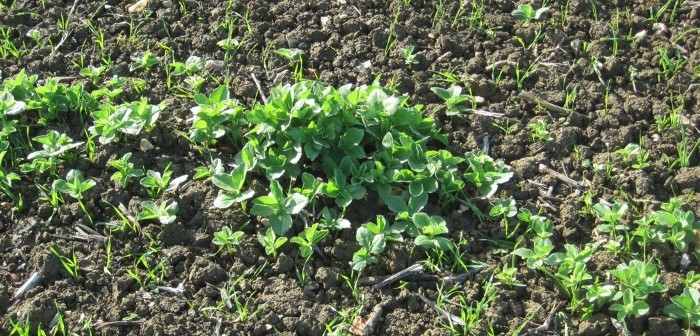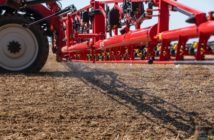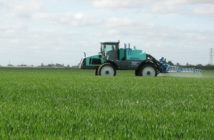Volunteer bean control in winter cereals is vital this autumn to prevent patchy crop establishment and ensure that contact graminicides work properly, says Dow AgroSciences’ cereals herbicide expert Stuart Jackson.
Mr Jackson says: “Weeds such as volunteer beans, oilseed rape and cleavers often form large clumps that threaten crop establishment in autumn-sown cereals. Additionally, volunteers can impair grassweed control by shading target weeds from contact herbicides.
“With fluctuating autumn temperatures and sporadic active growth in both crop and weeds, it’s important to choose a product which acts fast and works well in cool conditions, to ensure volunteers are cleared before final contact sprays are made,” says Mr Jackson.
Florasulam-based products provide good control in autumn. In addition, providing the total dose of florasulam does not exceed 7.5g ai/ha over the season, products such as Spitfire can be used in both autumn and spring.
“An autumn application of florasulam-based Spitfire (fluroxypyr + florasulam) can be followed by a spring application of another florasulam-based product such as Starane XL to clean up spring germinating broad leaved weeds, such as cleavers,” confirms Mr Jackson.
“Spitfire works quickly, even in cool conditions, to provide robust control of volunteer beans, OSR, cleavers and other broad-leaved weeds. Rain-fast within one hour and highly compatible in tank mixes, including with BYDV sprays, it offers excellent flexibility in the busy autumn spraying period. Additionally, Spitfire doesn’t pose any restrictions on rotational crops, unlike some of the alternatives which increase diflufenican (DFF) loading on the crop.”




